Field Of Dreams
The old farm fields are incredibly productive with native and not, things growing so rapidly it appears to me to be later than early June.
Asclepias syriaca has stout stems, thick leaves that are lighter underneath, and milky sap when any part is torn. A favorite of the Monarch Butterfly in its larval stage. Native.

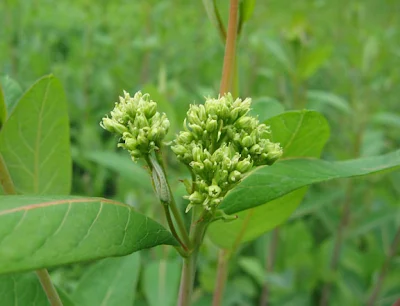


Asclepias syriaca has stout stems, thick leaves that are lighter underneath, and milky sap when any part is torn. A favorite of the Monarch Butterfly in its larval stage. Native.

Three weeks ago I figured this to be another type of Milkweed, growing right across the path from a patch of milkweed.

But then it grew upper branches and looser flower heads. This is either Hemp Dogbane, Apocynum androsaemifolium or Indian Hemp, Apocynum cannabinum. I'm leaning toward the cannabinum.
I noticed the hemp held water droplets on its leaf after a rain, but the milkweed did not. The hemp does have a similar milky sap when broken.

Yellow Wood Sorrel, Oxalis stricta -one of those North American natives that also exists in Europe and Asia.
I thought Swallowwort was a nightshade, but it is not: Cynanchum nigrum.
Don't confuse it with Carpetweed - Smooth Bedstraw, Galium mollugo has squared stems. Then there's the native Catchweed Bedstraw, which this is not.
Arenaria spp., chickweed -but which?

Ahh, spitwort! No, well you knew that. Spittle Bug actually excretes this out its anus, then hangs out in there.
Sparrow Vetch's leaves and tendrils say it's in the family of Peas.
No weed at all, but in the field.
A mustard or lettuce of some kind...


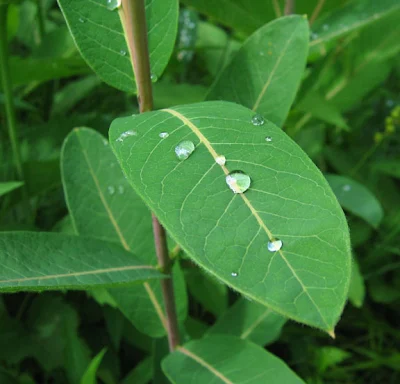


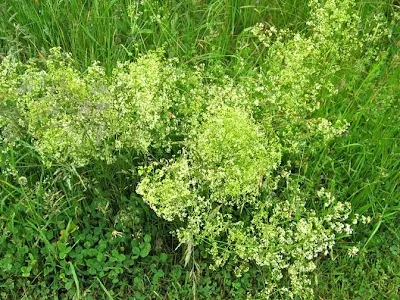
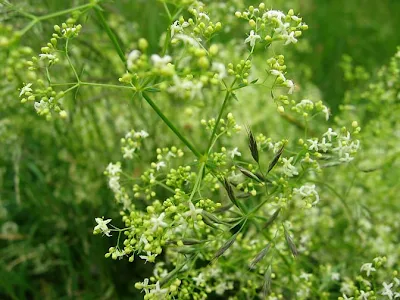










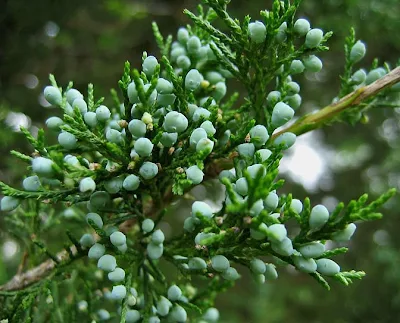
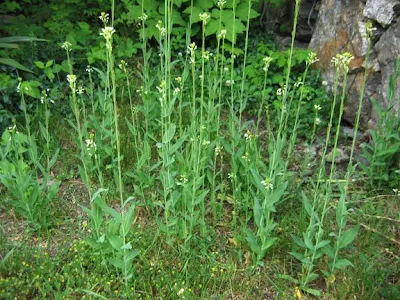

Thanks for the tour! Your mystery mustard might be tower mustard.
ReplyDeleteCurse that red sorrel - it's eating my yard!